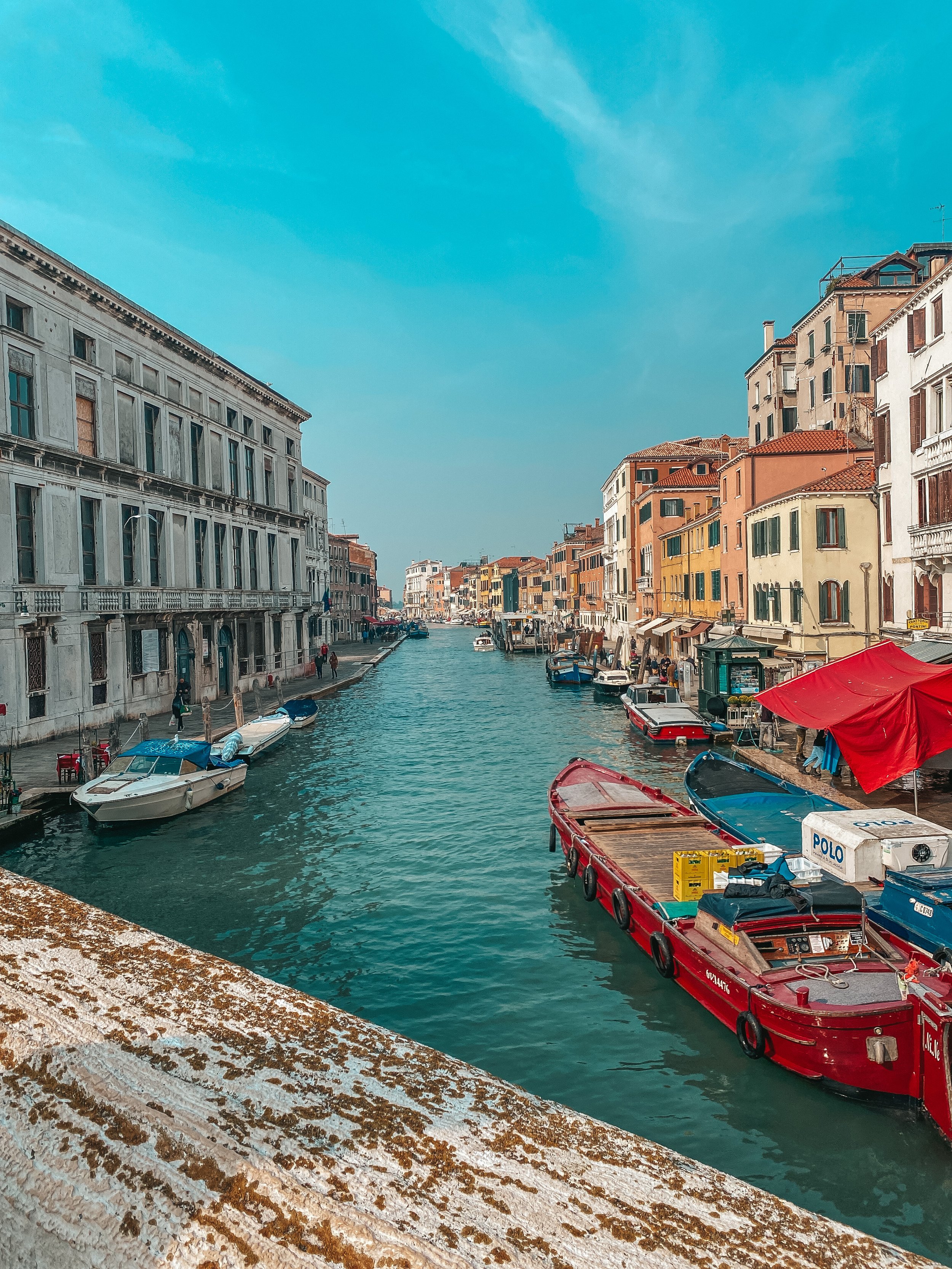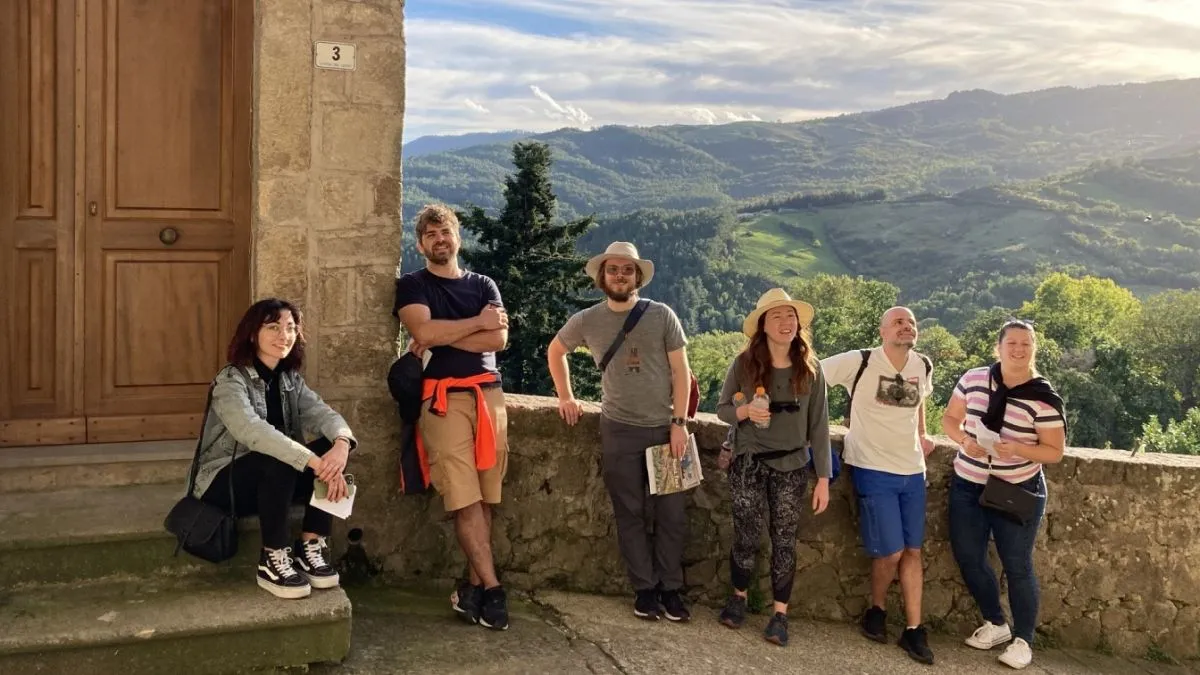Overview: Remote Work Landscape in Italy for 2025
Current Trends in Remote Work in Italy
Italy is seeing a big shift towards remote work. More than 7 million Italians now work remotely, especially in the tech industry.
Tech companies are leading this change. They offer flexible work arrangements and competitive salaries. This makes Italy an attractive place for remote workers.
The Rise of Digital Nomads in Italy
Digital nomads are flocking to Italy. The country's rich history, beautiful landscapes, and delicious food are big draws.
Italy launched its Digital Nomad Visa in April 2024. This visa allows non-EU remote workers to live and work in Italy, making it easier than ever to enjoy the Italian lifestyle.
Italy's Growing Appeal for Remote Workers
Italy's appeal goes beyond its beauty. The country offers a high quality of life and a relaxed pace.
Remote workers can balance work with exploring historic cities, enjoying the countryside, and savoring world-class cuisine. Italy's growing tech scene also provides ample networking opportunities.

Is Italy a Good Country for Remote Work in 2025?
Advantages of Working Remotely from Italy
Quality of Life and Work-Life Balance
Italy offers an exceptional quality of life. The Mediterranean climate, stunning scenery, and rich cultural heritage create a unique living experience.
Remote workers can enjoy a slower pace of life. Long lunches, afternoon breaks, and evening strolls are part of the daily routine.
Cultural and Recreational Opportunities
Italy is a treasure trove of cultural experiences. From ancient Roman ruins to Renaissance art, there's always something to explore.
The country's diverse landscapes offer endless recreational activities. You can hike in the Dolomites, swim in the Mediterranean, or ski in the Alps.
Challenges of Remote Work in Italy
Language Barriers and Cultural Adjustments
While English is spoken in major cities, knowing some Italian can be helpful. It will enhance your daily interactions and cultural immersion.
Adapting to the Italian way of life takes time. Be prepared for a slower pace and different business practices.
Bureaucratic Hurdles for Non-EU Workers
Navigating Italian bureaucracy can be challenging. Non-EU workers need to deal with visa applications, residence permits, and tax regulations.
The Digital Nomad Visa simplifies this for many. However, understanding the requirements is crucial.

Remote Work Opportunities in Italy for 2025
Top Industries and Companies Hiring Remote Workers
The tech industry is booming in Italy. Software development, cybersecurity, and data analytics are in high demand.
Companies like Airbus and Nomura offer remote positions. They provide training and career growth opportunities in cutting-edge technologies.
In-Demand Skills for Remote Positions
Employers seek professionals skilled in Java, C#, Python, and cloud technologies. Expertise in AI and cybersecurity is highly valued.
Soft skills like communication and time management are essential. They help you thrive in a remote work environment.
Platforms to Find Remote Jobs in Italy
Websites like Remote.co and WeWorkRemotely list remote job opportunities. LinkedIn and GitHub are great for networking and showcasing your skills.
You can also explore USAJOBS' tech portal for remote positions. Many federal government agencies are hiring remote workers.
Best Cities in Italy for Digital Nomads in 2025
Milan: The Business Hub
Milan is Italy's financial and fashion capital. It offers a vibrant mix of business and culture.
The city has numerous coworking spaces and a thriving startup scene. It's ideal for those seeking a fast-paced, cosmopolitan lifestyle.
Rome: The Cultural Capital
Rome is rich in history and culture. Its iconic landmarks and lively neighborhoods attract digital nomads from around the world.
The city offers a unique blend of ancient and modern. You can work from a cafe near the Colosseum or explore the Vatican City in your free time.
Florence: A Blend of History and Modernity
Florence is renowned for its Renaissance art and architecture. It's a smaller, more relaxed alternative to Rome and Milan.
The city's charm and beauty inspire creativity. It's perfect for those who appreciate art, history, and a slower pace of life.
Bologna: A Student-Friendly City
Bologna is home to one of the world's oldest universities. It has a youthful, vibrant atmosphere.
The city is known for its culinary scene and affordable living costs. It's a great choice for digital nomads on a budget. Bologna is also a top destination for digital nomads seeking a unique and affordable experience, as highlighted by English Jobs.
Other Emerging Cities for Remote Work
Smaller cities like Turin, Padua, and Catania are gaining popularity. They offer a lower cost of living and unique local experiences.
These cities provide a chance to immerse yourself in Italian culture. You can enjoy authentic cuisine and explore hidden gems away from the tourist crowds.

Cost of Living in Italy for Remote Workers
Average Expenses for Accommodation and Food
Accommodation costs vary by city. In Milan and Rome, expect to pay €800-€1,500 per month for a one-bedroom apartment.
Smaller cities offer more affordable options. Food costs are reasonable, especially if you shop at local markets and cook at home.
Transportation Costs in Major Cities
Public transportation is efficient and affordable in major cities. A monthly pass typically costs around €40.
Many cities are also bike-friendly. Cycling is a great way to explore and stay active.
Comparison of Living Costs Between Selected Cities
Here's a comparison of living costs in Milan, Rome, and Florence:
| City | Rent (1-bedroom apt) | Food (per day) | Transport (monthly) |
|---|---|---|---|
| Milan | €1,000 - €1,500 | €15 - €30 | €40 |
| Rome | €800 - €1,200 | €15 - €30 | €40 |
| Florence | €700 - €1,100 | €10 - €25 | €35 |
Italy's Remote Work Visa Options in 2025
Overview of the Digital Nomad Visa
Italy's Digital Nomad Visa, launched in April 2024, is a game-changer. It allows non-EU remote workers to live and work in Italy for one year, with the possibility of renewal.
This visa simplifies the process for digital nomads. It eliminates the need for a traditional work permit.
Eligibility Requirements
To qualify, you need to earn at least €28,000 annually. You must also have health insurance and proof of accommodation in Italy.
A university degree and six months of remote work experience are required. A clean criminal record is also necessary.
Application Process and Necessary Documentation
Apply for the visa before arriving in Italy. You'll need a valid passport, proof of income, health insurance, and accommodation details.
Submit your application at an Italian consulate or embassy. Once approved, you can enjoy the Italian lifestyle while working remotely. Upon arriving in Italy, digital nomads must apply for a permesso di soggiorno (residence permit) within 8 days, as highlighted by Go! Go! Italia.
Additional Visa Options for Remote Workers
Self-Employment Visa
This visa suits freelancers and entrepreneurs. You'll need a detailed business plan and proof of professional qualifications.
It's ideal for those looking to establish a business presence in Italy.
Elective Residence Visa
This option is for individuals with substantial passive income or savings. You don't need to work while in Italy.
It's a good choice for retirees or those with significant investments.
Family Reunion Visa
If your spouse or partner is an EU citizen or Italian resident, this visa may apply. It allows you to live and work in Italy based on your family connection.
This can be a pathway to long-term residency.
Conclusion: Is Italy the Right Choice for You in 2025?
Final Thoughts on Living and Working Remotely in Italy
Italy offers a unique blend of work and lifestyle opportunities. The Digital Nomad Visa makes it easier for non-EU remote workers to experience the country's charm.
However, challenges like language barriers and bureaucracy exist. Weigh the pros and cons carefully.
Recommendations for Prospective Remote Workers
Learn basic Italian before you arrive. It will enhance your daily life and cultural immersion.
Research visa options thoroughly. Choose the one that best fits your situation and long-term goals.
Connect with other digital nomads. Join online communities and attend local meetups to build your network.
Key Takeaways:
- Italy's Digital Nomad Visa, launched in April 2024, allows non-EU remote workers to live and work in Italy for a year.
- Tech industry is booming, with remote work opportunities in software development, cybersecurity, and data analytics.
- Milan, Rome, Florence, and Bologna are top cities for digital nomads, each offering unique cultural experiences.
- Cost of living varies, with smaller cities offering more affordable options compared to Milan and Rome.
- Eligibility for the visa requires a minimum annual income of €28,000, health insurance, and proof of accommodation.
